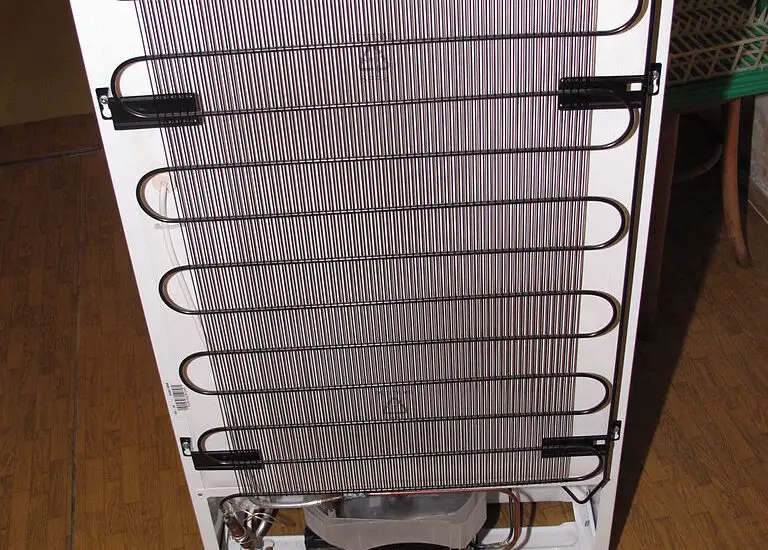Condenser noise – It’s like the uninvited guest that spoils your calm evening. But what is it, really? And more importantly, why does it matter? Well, it’s high time we face this unwanted guest head-on. Because knowledge, as they say, is power.

Table of Contents
The Science Behind Condenser Noise
Let’s get our scientist glasses on. But don’t worry, we won’t make it too complicated.
The Origin of Noise in Condensers
So, where does the noise come from? It’s a bit like when you’re cooking pasta. When you’ve got the heat too high, it starts to bubble and spit, right? Well, condensers can do the same.
Mechanical Vibrations
Picture a guitarist strumming the strings. Those vibrations make the music. In a condenser, vibrations can lead to an entirely different kind of symphony. Not the one we enjoy, though.
Aerodynamic Noise
Remember those wild windy days when the howling wind keeps you up at night? That’s because the air is moving chaotically. The same can happen inside a condenser, causing quite a racket.
The Impact of Condenser Noise
No, it’s not just about disturbing your peace. The effects go a bit deeper than that.
Health Implications
Ever spent a night with a snoring partner? That’s what living with condenser noise can feel like. But it’s not just about losing sleep. Prolonged exposure can lead to health issues like stress, headaches, and even hearing loss.
Productivity Issues
Imagine trying to work while a street band is playing right next to your window. That’s how productivity can take a hit when your AC or fridge is belting out a tune.
Diagnosing Condenser Noise
The first step to fixing a problem? Knowing what’s causing it.
Identifying Common Noise Patterns
Condenser noise can be as unique as a fingerprint. Each pattern could tell a different story. But only if we know how to listen.
Tools and Techniques for Diagnosing Condenser Noise
Armed with the right tools, we can play detective and solve the mystery of the noisy condenser.
Sound Level Meters
These are like traffic cops for noise. They can tell you how loud it’s getting and help you pinpoint where the noise is coming from. Kind of like playing ‘hot or cold’ with noise.
Vibration Analysis Tools
Remember our guitar analogy? Vibration analysis tools can tell us how ‘loud’ those mechanical vibrations are getting. And knowing that can help us hit the right notes in solving the problem.
Check out these other related articles…
Condenser Unit Not Running: Reasons & 2 Proven Solutions
Outside Condenser Freezing Up: 4 Proven Solutions
Oversized Condenser Problems: 4 Easy Solutions
Condenser Unit Refrigeration: Your Comprehensive 411 Guide
Condenser Efficiency: Your Ultimate Guide
Mitigating Condenser Noise
Now we’re talking solutions. Ready?
Soundproofing Techniques
Soundproofing a condenser is a bit like putting a muffler on a loud motorcycle. It helps keep the peace without affecting performance.
Noise Barriers
Noise barriers are like those noise-canceling headphones. They help keep the noise where it belongs – away from your ears.
Vibration Isolators
Vibration isolators act like a cushion, absorbing those jarring mechanical vibrations that contribute to the noise. It’s like putting a shock absorber on your condenser.
Maintenance Practices to Reduce Noise
Just like going for a regular check-up keeps you healthy, regular maintenance can keep your condenser quiet and efficient.
Innovations and Future Trends in Condenser Noise Reduction
Just when you thought we’d reached the end of our journey, let’s take a peek into the future.
Technological Advancements in Noise Control
The tech world never sleeps, and that’s good news for all of us tired of condenser noise. New solutions are on the horizon that could make noisy condensers a thing of the past.
Legal and Regulatory Trends
As awareness about the effects of noise pollution grows, so do the laws and regulations around it. So, expect to see more noise-control measures in the coming years.
